The Lethal Bite of the Water Moccasin
Water Moccasin Bites: A Significant Health Hazard in the Southeastern United States
Water moccasin bites can be extremely dangerous for people living in or visiting the southeastern region of the United States. These venomous snakes, commonly referred to as cottonmouths, pose a significant risk to individuals who come in contact with them. It is crucial for everyone to be aware of the potential dangers associated with water moccasin bites and to take immediate action if bitten.
Symptoms and Risks
When bitten by a water moccasin, victims experience pain, swelling, and discoloration at the site of the bite. In severe cases, symptoms may also include nausea, vomiting, and difficulty breathing. Prompt medical attention is essential to prevent complications or even death.
Prevention and Safety Measures
To reduce the risk of being bitten by a water moccasin, it is advisable to wear protective gear when in their habitats and to maintain a respectful distance from these snakes. By taking these precautions, individuals can ensure their safety and avoid potential encounters with water moccasins.
Table of Contents show
Overview of the Water Moccasin
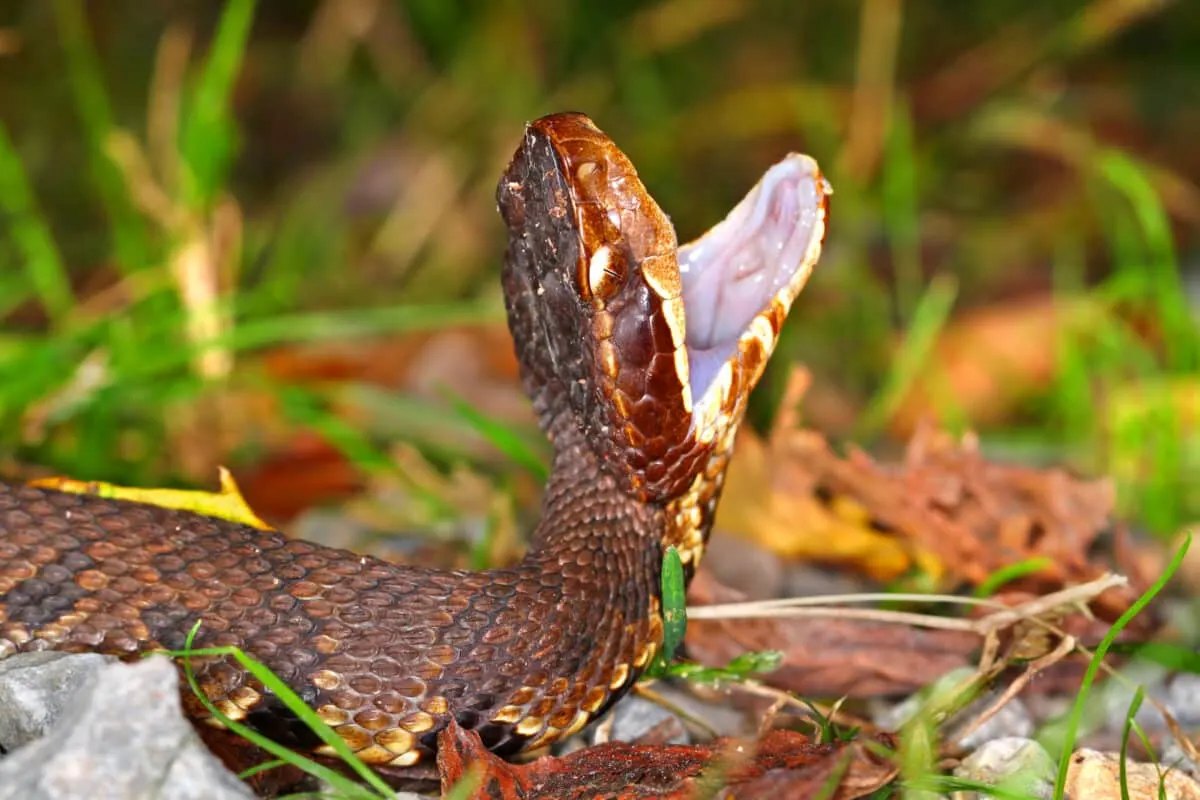
The water moccasin, also known as the cottonmouth, is a venomous snake commonly found in wetlands across the southern United States. These semi-aquatic snakes prefer living near water and are skilled swimmers, choosing habitats such as swamps and marshes.
With their dark olive-brown bodies and broad triangular heads, water moccasins have a distinctive appearance. A notable characteristic is the white or cream-colored lining of their mouths, visible when they feel threatened. They can reach lengths of up to 4.5 feet, making them one of the largest venomous snakes in North America.
Although generally calm, water moccasins are considered dangerous due to their venomous bite. Their venom contains hemotoxins and neurotoxins, leading to symptoms like pain, swelling, tissue damage, nausea, vomiting, and breathing difficulties. In severe cases, a water moccasin bite can be fatal.
It is crucial for individuals residing in or visiting areas where water moccasins are present to be aware of the associated risks and take necessary precautions. These include staying vigilant, wearing protective clothing and footwear in known habitats, and seeking immediate medical attention if bitten.
Recognizing Signs and Symptoms of a Water Moccasin Bite
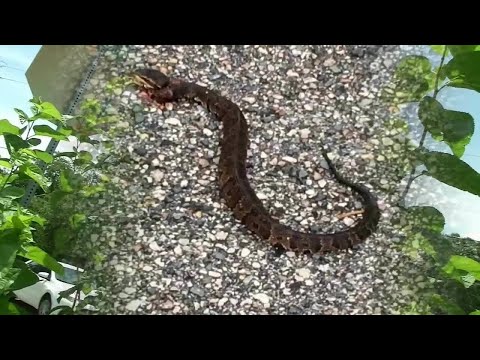
A bite from a water moccasin can lead to immediate effects like pain, swelling, and discoloration around the area of the bite. Other possible symptoms include nausea, vomiting, and difficulty breathing. If left untreated, these symptoms can progress to more serious complications such as tissue damage, organ failure, and rare cases of death.
Differentiating a water moccasin bite from other snakebites is crucial as the symptoms and treatment options may vary. A water moccasin bite often causes a large, swollen wound with two distinct puncture marks, similar to venomous snakebites. Additionally, the distinctive white or cream-colored lining inside the water moccasin’s mouth may be visible near the bite site, aiding in confirming the diagnosis.
Anyone suspecting a water moccasin bite should seek immediate emergency medical attention. Quick treatment can help reduce the risk of complications and improve the chances of a complete recovery.
What to Do Immediately After Being Bitten by a Water Moccasin
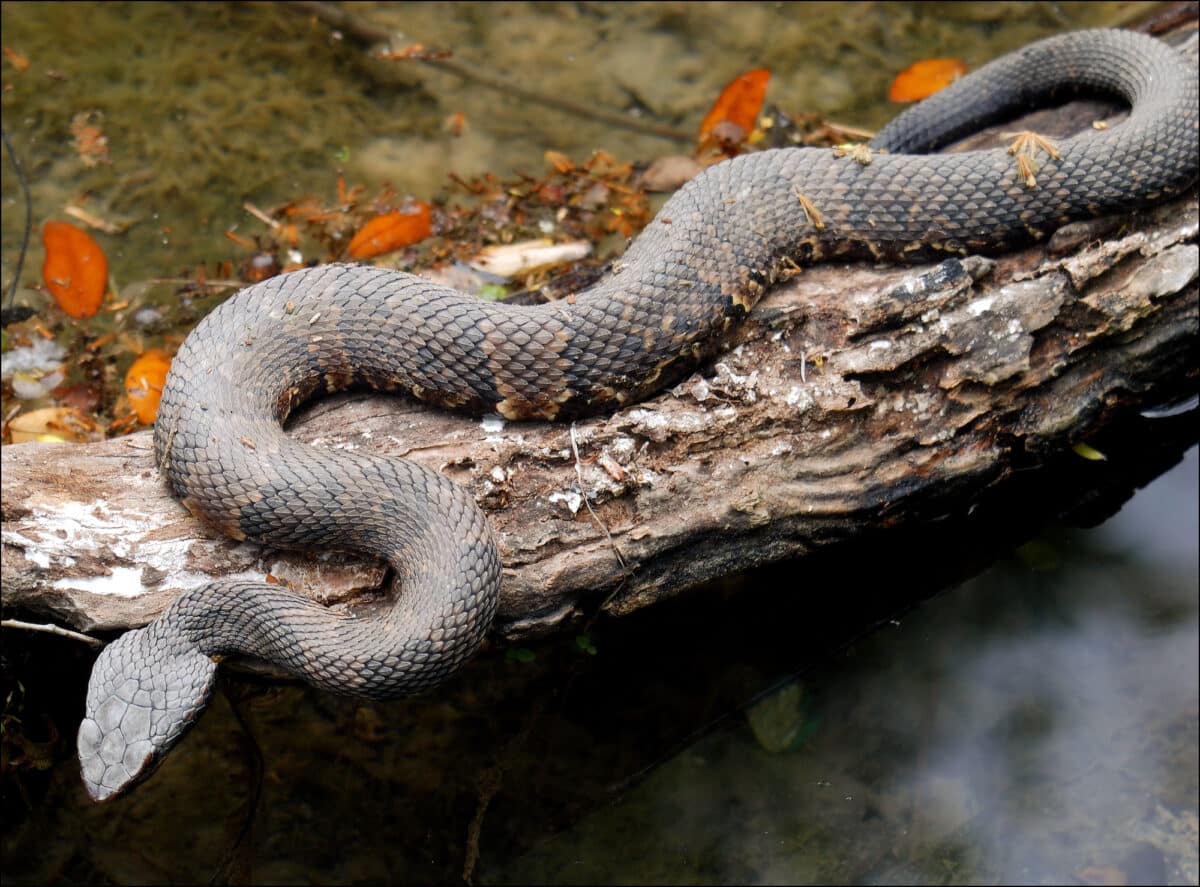
After being bitten by a water moccasin, the first and most important step is to call for emergency medical help. While waiting for assistance, it is crucial for the victim to stay calm and prevent the venom from spreading rapidly within the body. Avoid wearing tight clothing or jewelry near the bite area to prevent further swelling.
Do not attempt any first aid measures such as using a tourniquet or trying to suck out the venom. Instead, focus on keeping the victim calm to minimize the venom’s spread. Trying to remove the venom can cause more harm than good.
Treating Water Moccasin Bites: Medical Intervention and Antivenom
When it comes to water moccasin bites, medical treatment often involves administering antivenom therapy within a hospital environment. This approach is crucial for neutralizing venom effects and preventing complications. Adequate pain management and wound care are also essential for a complete recovery.
While antivenom is highly effective in treating water moccasin bites, its use may not be necessary in all cases. Decisions regarding antivenom administration depend on factors such as the bite’s severity, the patient’s overall health, and other considerations.
Timely treatment is of utmost importance, as delaying it can escalate the risk of severe complications like tissue damage, organ failure, or even death. It is vital for individuals to adhere to recommended medical procedures for managing water moccasin bites, including the appropriate administration of antivenom.
Preventing Water Moccasin Bites
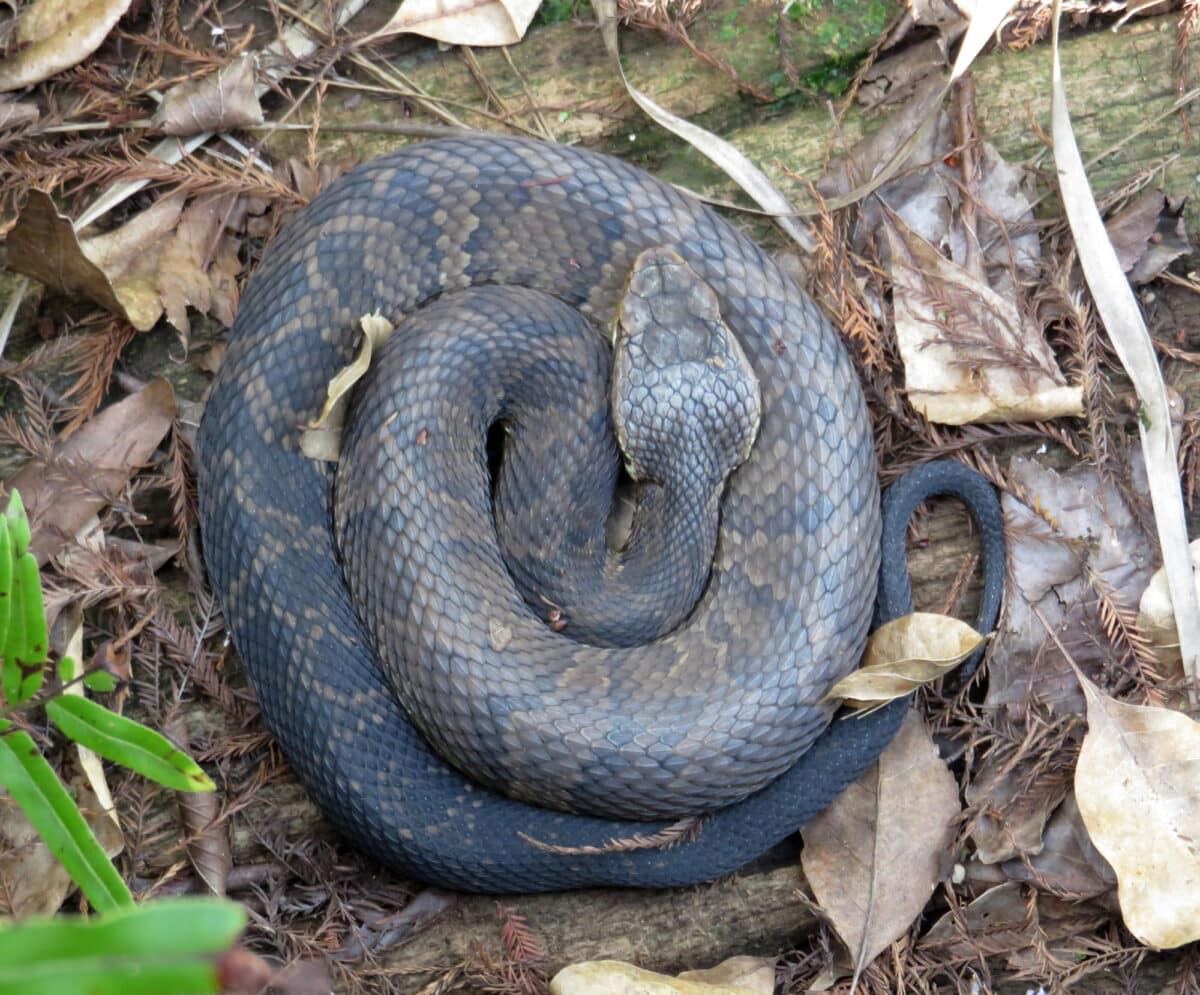
To prevent water moccasin bites, it is crucial to understand their habitats and behavior. Follow these tips to avoid encounters with water moccasins: wear protective clothing and footwear in known habitats, stay alert to your surroundings, and refrain from disturbing or approaching snakes in their natural habitats.
When in water moccasin habitats like swamps and wetlands, take extra safety measures. Stick to established trails, steer clear of tall grass or brush where snakes may hide, and avoid stepping on logs or other objects that might conceal a water moccasin.
It’s worth noting that there are many misconceptions about snake behavior, such as the mistaken belief that all snakes are aggressive and will attack without provocation. In reality, most snakes, including water moccasins, only attack when they feel threatened or trapped. By staying calm and aware of your surroundings, you can lower the risk of a water moccasin bite and ensure a safe and enjoyable outdoor experience.
Frequently Asked Questions
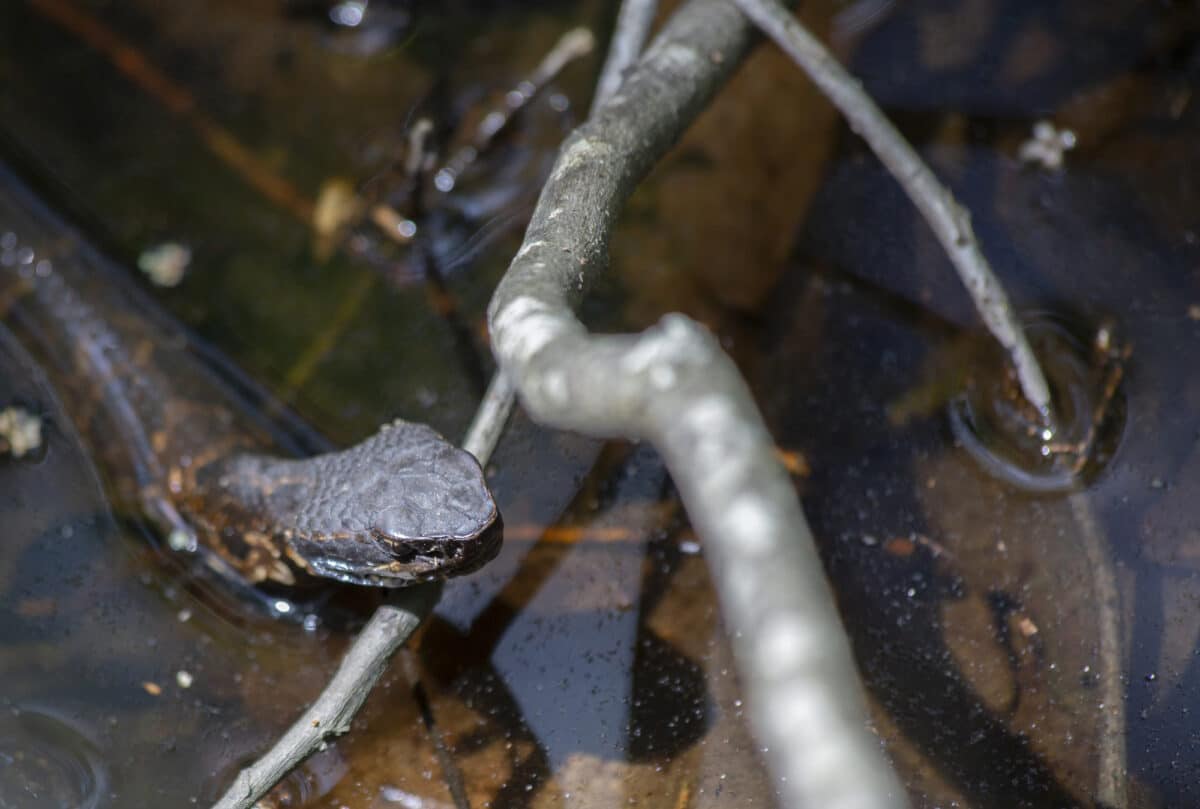
What are the symptoms of a water moccasin bite?
A water moccasin bite can cause immediate pain, swelling, and discoloration around the bite area. Other symptoms may include nausea, vomiting, and difficulty breathing. If left untreated, these symptoms can worsen.
What should I do immediately after a water moccasin bite?
After a water moccasin bite, it is crucial to call for emergency medical assistance. Stay calm and avoid spreading the venom by not using tourniquets or attempting to remove the venom.
How are water moccasin bites treated?
Water moccasin bites are typically treated with antivenom therapy in a hospital. This helps counteract the snake’s venom and prevent complications. Pain management and wound care are also important for a complete recovery. Seeking immediate professional medical care is essential for the best outcome.
The Dangerous Bite of the Water Moccasin
Overview
Water moccasin bites pose a significant risk in the southeastern US. It is crucial to understand the risks and know what immediate actions to take in case of a bite.
Venom Symptoms
Bite symptoms include pain, swelling, discoloration, nausea, vomiting, and breathing difficulties. Without prompt treatment, serious complications can occur.
Preventive Measures
When bitten, call for medical help, stay calm, and prevent venom from spreading. Avoid using tourniquets or attempting to remove the venom.
Understanding the Water Moccasin
These venomous, semi-aquatic snakes are found in the southeastern US. They can be identified by their appearance and behavior.
Signs and Symptoms
Immediate effects of a bite include pain, swelling, and discoloration. Severe cases may experience nausea, breathing difficulties, tissue damage, and organ failure.
Immediate Actions After a Bite
Seek hospital-administered antivenom therapy, manage pain, and provide proper wound care. Prompt medical attention is essential.
Medical Treatment and Antivenom
Knowing their habitats, wearing protective gear, being aware of your surroundings, and avoiding disturbances can help prevent water moccasin bites.
Preventing Water Moccasin Bites
Know the habitats of these snakes, wear protective gear, stay aware of your surroundings, and avoid disturbing them.